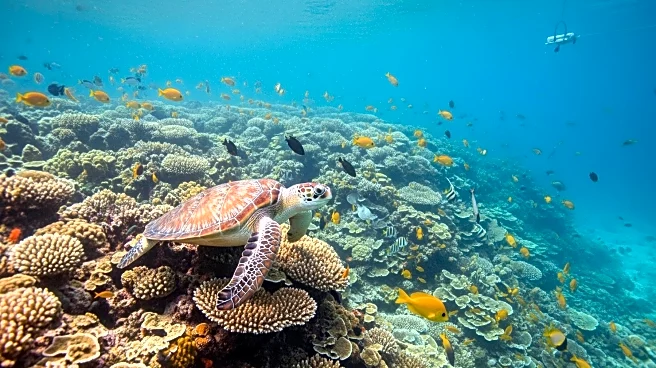What's Happening?
The British Government is being urged to implement a complete ban on bottom trawling in its waters. This call comes as the UK Parliament considers the Biodiversity Beyond National Jurisdiction Bill, which
aims to protect marine biodiversity. Bottom trawling, a fishing method that drags nets across the sea floor, is criticized for its destructive impact on marine ecosystems. The bill, which has passed its second reading, seeks to align the UK with international efforts to safeguard ocean biodiversity and could lead to a broader international ban on the practice.
Why It's Important?
The push to ban bottom trawling reflects growing environmental concerns about the sustainability of fishing practices and their impact on marine life. A ban could significantly affect the fishing industry, requiring adaptation to more sustainable methods. It also highlights the UK's commitment to environmental protection and could set a precedent for other countries. The decision could influence global marine conservation efforts and contribute to the protection of endangered species and fragile ecosystems.
What's Next?
The bill will proceed to the committee stage, where MPs can propose amendments. If passed, the UK will join 75 other countries in ratifying the UN treaty aimed at protecting marine biodiversity. The government may need to work with the fishing industry to develop sustainable alternatives and ensure compliance with new regulations. International collaboration will be crucial to address the global challenge of marine conservation.
Beyond the Headlines
The debate over bottom trawling raises ethical questions about the balance between economic interests and environmental stewardship. It also underscores the importance of international cooperation in addressing environmental challenges and the need for innovative solutions to protect marine ecosystems.










